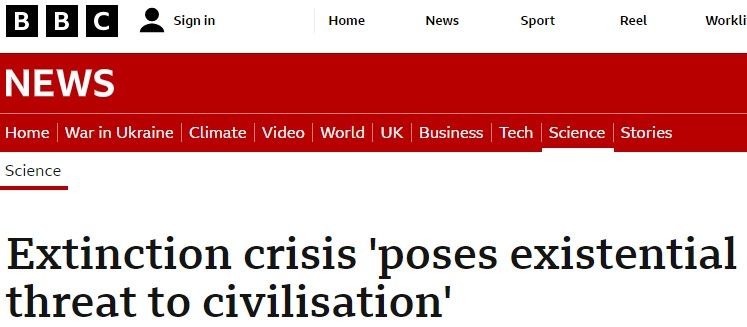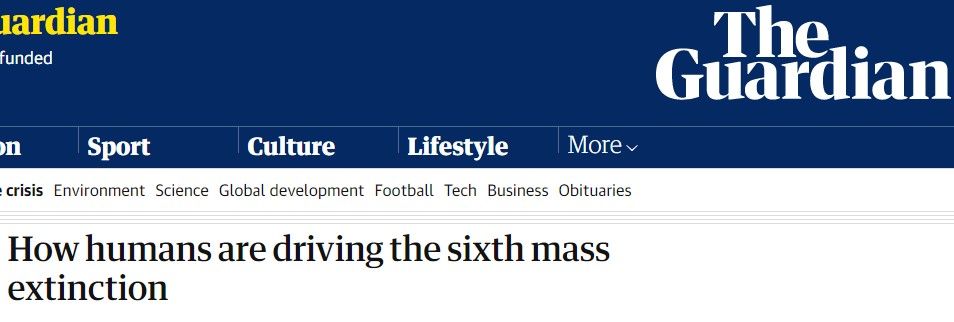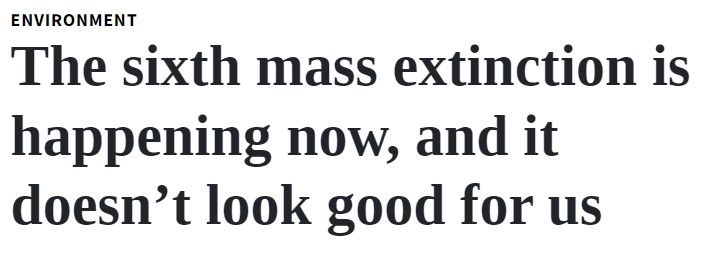
🔎 This is why we investigate the sixth mass extinction
Don't we care about animals going extinct? Doesn't this investigation risk causing people to stop caring about animal extinction? Warp News' editor-in-chief responds to why we are investigating the sixth mass extinction.
Share this story!
Our perception is that media reporting does not provide an accurate picture of reality. It is overly negative. Not that it is wrong to report problems and bad things, but the balance is missing.
An excessively negative media image contributes to people viewing both the present and the future pessimistically.
We want to contribute to a better balance and therefore focus on fact-based optimistic news in technology, science, and human progress.
Too bad to be true?
A journalistic reflex is to think: "That sounds too good to be true."
But rarely or never the opposite: "That sounds too bad to be true."
This means that negative claims are not subjected to equally tough questions or scrutiny.
Examining negative exaggerations is at least as important as examining positive exaggerations.
We therefore carry out investigations from the other perspective: Too bad to be true.
Mass mass extinction in the media
Organizations like Greenpeace and WWF argue that we are in, or about to enter, a sixth mass extinction.
The claim is also frequently repeated in the mass media. Here is a sample:





Why the sixth mass extinction?
The subject was chosen by members of our community.
First, they were asked to come up with suggestions for "Too bad to be true" reviews. We then selected three of these and allowed subscribers and members to vote.
The winner, with 43 percent of the votes, was the sixth mass extinction.
Crowdfunded
After that, our members also helped with the financing. We received about $1000 from them, and The Progress Network came in with the other half.
The investigator
As the investigator, we have chosen Anders Bolling.
He is an experienced and respected journalist, with over twenty years of experience as a reporter and editor at Sweden's largest morning paper, Dagens Nyheter. In addition, he has authored two books.
Shouldn't we care about the extinction of animals?
Yes, we should. The purpose of our review is not to diminish real problems. As Anders Bolling's text shows, there are serious problems with species extinction. These problems are bad enough and do not need to be exaggerated.
It is precisely the exaggeration of a sixth mass extinction that we oppose.
Won't people stop caring if the problem isn't that big?
There is nothing wrong with being critical and highlighting problems. If no one had done that, we would've continued to eradicate species. But when we start changing our behavior and start fixing the problem, this must also be acknowledged.
In the positive change, we can feel hope and confidence in the future that problems can actually be solved. We can be inspired by what we do right and do more of it.
If, on the other hand, we keep insisting and make it sound as if something is only getting worse and worse, and completely disastrously bad, it can lead to resignation and hopelessness.
Mathias Sundin
Editor-in-chief
By becoming a premium supporter, you help in the creation and sharing of fact-based optimistic news all over the world.


